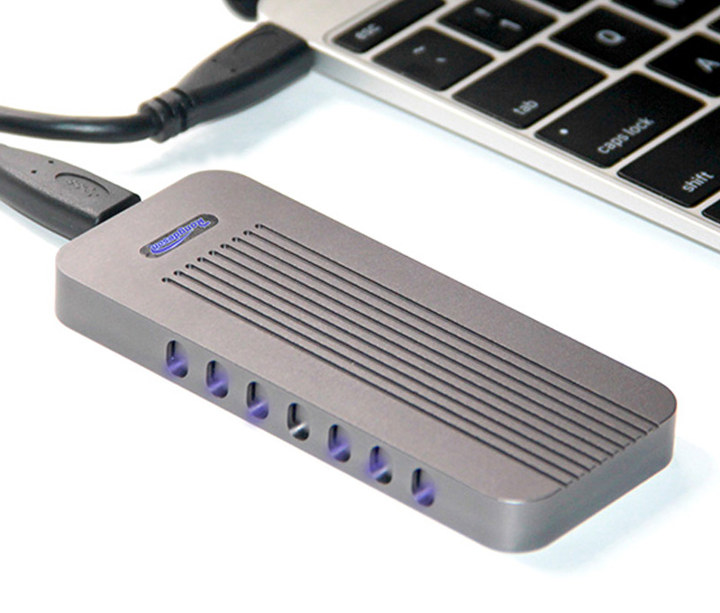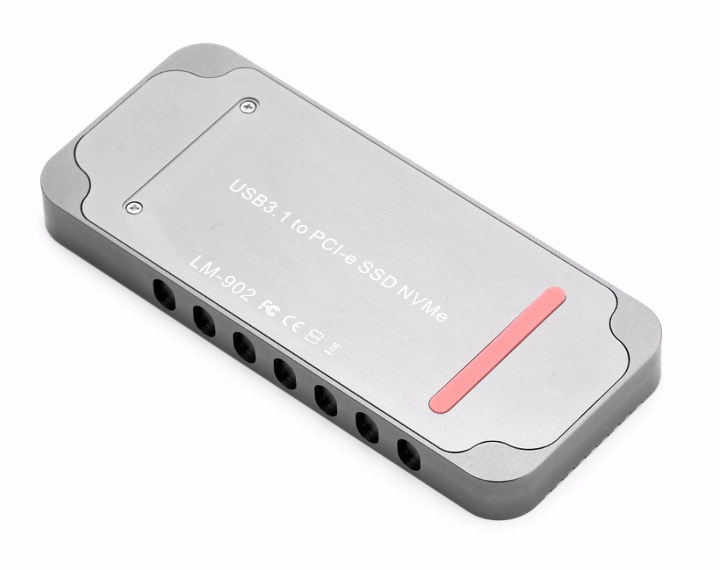Yesterday, I wrote about ASMedia ASM2362 USB 3.1 Gen2 to PCIe NVMe SSD chip that will allow for connecting NVMe SSD into (largish) USB stick enclosures delivering up to 10 Gbps raw throughput.
The post generated several comments including that JMicron Technology was also showcasing their own solution at Computex 2018 with JMS583 USB 3.1 Gen 2 to NVMe PCIe Gen3 bridge controller, and that enclosures were already for sale in China. If it is for sale in China, it should also be for sale on Aliexpress, or at least on Taobao.  Bingo! LM-902 “USB 3.1 to PCI-e SSD NVMe” enclosure offers just that for $42.93 including shipping on Aliexpress.
Bingo! LM-902 “USB 3.1 to PCI-e SSD NVMe” enclosure offers just that for $42.93 including shipping on Aliexpress.
Listed features and specifications:
- Storage I/F – NVMe M.2 M-key socket with PCIe 3.1a
- USB – USB 3.1 Gen2 type C up to 10 Gbps
- Features
- Supports TRIM to the SSD
- USB Type-C multiplexer& configuration channel(CC) logic
- NVM Express 1.3
- USB Mass Storage Class, Bulk-only Transport Specification(Revision 1.0)
- etc… That part is just a copy & paste of JMS583 product brief‘s features list, and maybe not be relevant here, e.g. “Thirteen GPIOs for customization”
- Dimensions – 107 x 46 x 10mm ( Aluminum)
 The enclosure should work with any operating systems including Windows 10, Linux distributions, Mac OS X, and appears to ships with a USB type C to USB 3.1 cable, as well as a small screwdriver.
The enclosure should work with any operating systems including Windows 10, Linux distributions, Mac OS X, and appears to ships with a USB type C to USB 3.1 cable, as well as a small screwdriver.

Jean-Luc started CNX Software in 2010 as a part-time endeavor, before quitting his job as a software engineering manager, and starting to write daily news, and reviews full time later in 2011.
Support CNX Software! Donate via cryptocurrencies, become a Patron on Patreon, or purchase goods on Amazon or Aliexpress




